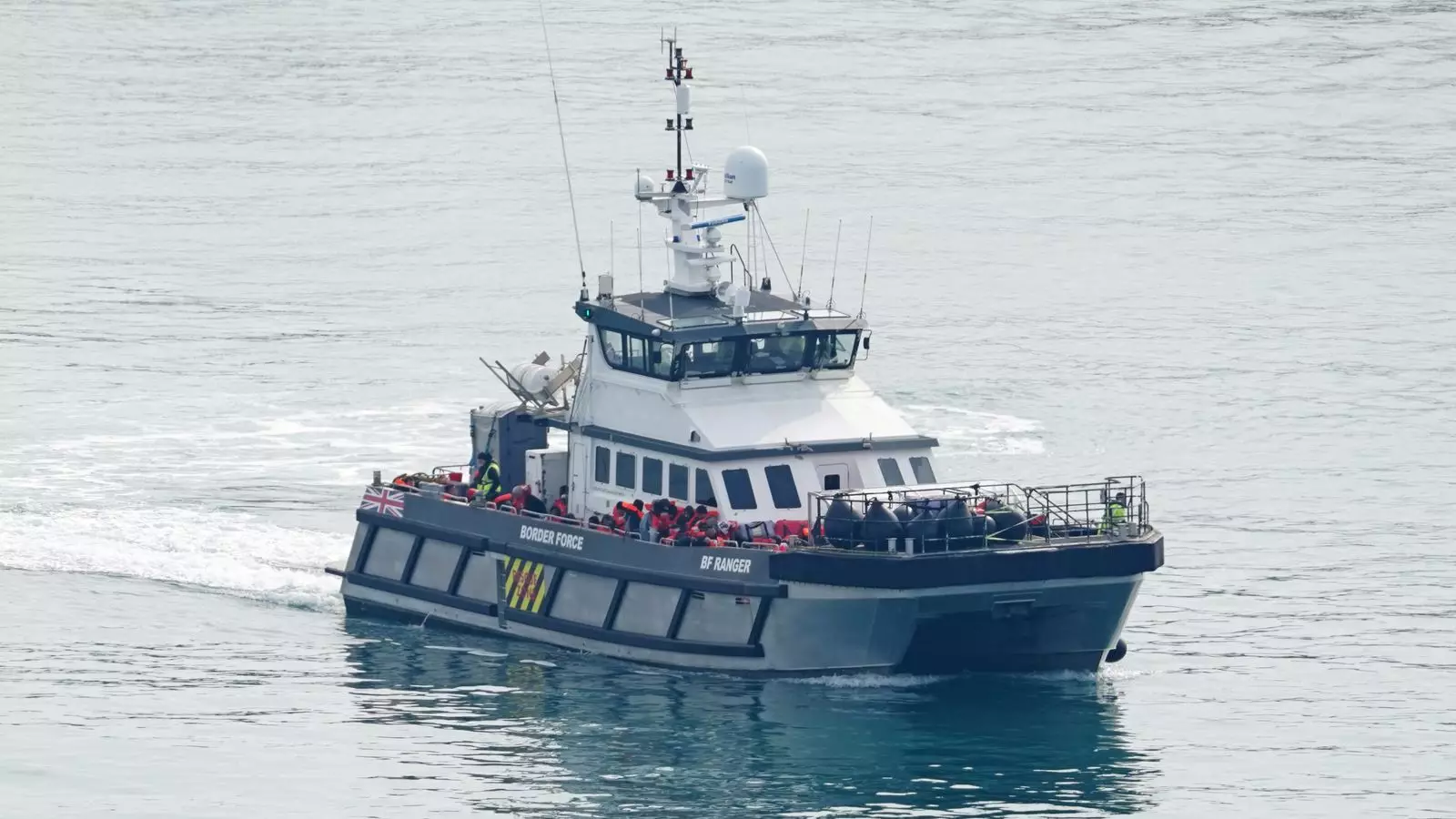In a sobering turn of events, the perilous journey across the English Channel has once again claimed a life, as revealed by recent reports from French authorities. This incident, which involved a small boat attempting to navigate from France to the UK, underscores the increasingly desperate measures taken by individuals seeking better lives. With one confirmed fatality and 34 others rescued, the situation highlights the grim realities faced by those willing to risk everything for a chance at safety and security in the UK.
The English Channel, the world’s busiest shipping lane, has seen a dramatic increase in small boat crossings, reaching record levels for this time of year. Statistics from the UK indicate that in a single week, approximately 1,500 individuals undertook the perilous journey aboard 27 boats. This translates to an alarming average of nearly 56 passengers per vessel, emphasizing both the overcrowding of these small crafts and the escalating urgency felt by those aboard. Furthermore, during the same week, 1,007 people were intercepted, a clear indication of the ongoing struggle to manage illegal crossings.
The French coastguard reported that the distress call was made around 5:30 AM when the ill-fated boat signaled for help. Upon arrival, rescuers found one individual unconscious; tragically, efforts to revive them were unsuccessful, and they were pronounced dead after being taken to a medical facility. While 34 individuals were brought to safety, the coastguard’s operation illuminated the precarious balance between immediate action and ensuring the safety of all involved—several passengers remained on the troubled vessel, further complicating the rescue dynamics.
In light of these distressing incidents, the political landscape surrounding migration in the UK has undergone significant scrutiny. Following a recent general election that resulted in a change of government, new measures are being proposed to tackle the ongoing migration crisis. Sir Keir Starmer, the leader of the opposition, has abolished the controversial Rwanda deportation scheme and has redirected focus towards international collaboration to prevent these dangerous journeys. His administration has pledged a substantial £84 million aid package aimed at addressing the root causes of migration in Africa and the Middle East. This strategic pivot reflects a broader understanding of the complexities inherent in migration and seeks to promote solutions that go beyond immediate deterrents.
The tragedies occurring in the Channel serve as a stark reminder of the human cost linked to migration and underscore the urgent need for sustainable solutions. High-risk journeys are often driven by desperation, whether due to war, economic instability, or persecution. The UK’s commitment to collaborating with nations like Rwanda and Qatar reflects a shift toward proactive measures aimed at alleviating the pressures that lead to dangerous crossings. As the government navigates this intricate landscape, it is crucial to balance enforcement with compassion, fostering an approach that addresses both immediate risks and long-term migration management.
The incident in the English Channel must serve as an impetus for renewed dialogues around migration policy, humanitarian aid, and collaborative efforts to ensure that such tragedies do not continue to unfold.


Leave a Reply